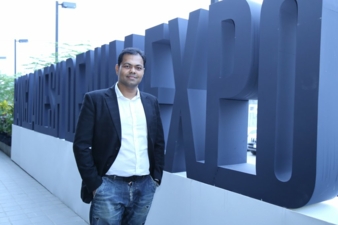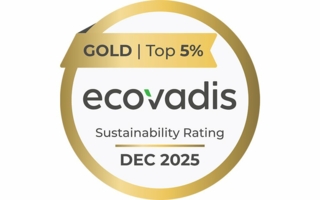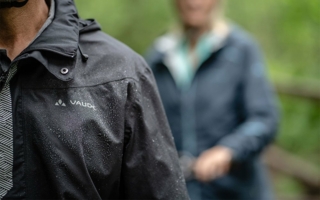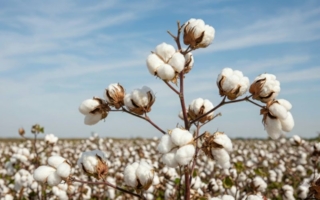27/11/2017 – Interview: How important is Europe for Bangladesh? — auf Deutsch lesen
We talked to Mostafiz Uddin, CEO Denim Expert Ltd.
Mostafiz Uddin, CEO Denim Expert Ltd. campaigns for sustainability and social responsibility in Bangladesh. We talked to him on his tour through Europe.
Mostafiz Uddin started from Munich with a stand at Munich Fabric Start, then went to Copenhagen, the city of the fashion summit, then Paris for denim fairs and Italy to pursue innovation. Mr Uddin wants, that the buyers and denim community understand the capability of Bangladesh denim industry.
tn: What was the idea/target behind this roundtrip?
Mostafiz Uddin: The first reason was to promote Bangladesh and show Bangladesh’s denim face, since so many speak of our country, but rarely put us in the face. So I went in person not so much to talk about business but to promote what we do. Connecting the denim fashion world is part of my continuous endeavor that drives me to Europe as well. I also invited all to visit the 7th edition of Bangladesh Denim Expo to be held on 8th and 9th November 2017.
tn:Which impressions/insights are you bringing back from Europe?
Mostafiz Uddin:I have observed that the people I met in Europe had been very impressed about the progress Bangladesh made in terms of safe workplace and sustainability. I felt that we have ample opportunity to further explore the European market provided that we made publicity about what we have achieved and what are our strengths. As far as denim is concerned ‘Made in Bangladesh’ jeans are the top selling pairs and we are gradually upscaling our value addition, so there is already a change in perception about Bangladesh.
tn: How important is Europe for Bangladesh as a textile producer?
Mostafiz Uddin: European Union is the largest destination of Bangladesh’s readymade garment. Bangladesh exported apparel worth US$ 28.15 billion to the world last year, among them the country exported US$ 17.75 billion to the EU only which is about 63 percent of its total apparel export. Moreover, Bangladesh is the largest exporter of denim to the Europe. Our export growth to Europe is phenomenal. As Bangladesh is now pursuing a growth vision based on innovation in products, European upmarket is still a ‘greenfield’ for us.
tn: What do you value regarding working with European business clients?
Mostafiz Uddin: As I mentioned earlier Europe is the largest destination of our denim wears manufactured, the majority and big apparel clients of Bangladesh are from Europe. We have also very strong and trusted relations with the European business clients which is very much evident through their continuous engagement in transforming our apparel industry. We have found our European customers as partner of our progress. As a denim manufacturer the lion share of my export I also do to the Europe. I closely work with some European brands. Our working experience is very good and we greatly value our relations. Especially the partnership approach, appreciation and value of relationship inspire me a lot while working with European clients.
tn: Are there prejudices against Bangladesh as a producer country that are not justified in your opinion?
Mostafiz Uddin: Though Bangladesh’s apparel industry has made a paradigm shift as regards the workplace safety, I feel this story of transformation of the industry is not known to the customers. They often judge Bangladesh’s apparel industry by the Rana Plaza incident. The industry before the Rana Plaza and after Rana Plaza is as different as night and day. Bangladesh is probably now one of the most transparent and cleanest among the garment manufacturing countries in the world. Moreover, after addressing the safety concerns the garment industry of Bangladesh is also focusing on sustainability. There are already 67 garment factories in Bangladesh achieved LEED certificates from the United States Green Building Council (USGBC). About 280 more have already registered to get the certification. At present, the world’s highest rated LEED Platinum knit factory named Plummy Fashions Ltd is in Bangladesh, the world’s highest rated LEED Platinum denim manufacturing unit Vintage Denim Studio is in Bangladesh, the world’s highest rated LEED Platinum Textile factory Envoy Textiles is established in Bangladesh, world’s highest rated LEED Platinum washing plant named Genesis Washing is located in Bangladesh and the world’s highest rated LEED Platinum RMG unit Remi Holdings Ltd is also situated in Bangladesh. But this story of transformation from Rana Plaza to Remi Holdings is till untold to the world and unknown to the customers.
tn: How would you describe your country?
Mostafiz Uddin: Precisely I would say Bangladesh is a country of valiant and vibrant people. The country which has been liberated in 1971 & is now one of the fastest growing economies of the world. The age of about 65 percent of its population is between 18-35 years. This young population of the country has contributed to the rise of its economy and manufacturing. The RMG is the lifeline of the country’s economy that accounts for about 81 percent of its total export earning and creates employment of about 4 million workers of which around 70 percent are women. The quality, commitment and more than 35 years experience of Bangladesh in manufacturing apparel has established the country as the world’s second largest in exporting readymade garment. We have a rich cultural heritage in Bangladesh, especially our people are known for their warm hospitality. Though Dhaka is a crowded city, we have an evergreen country-side rich with scenic landscape meshed with rivers and lakes.
tn: Could you give a short impression of the life of a textile worker – working hours/wages/health care?
Mostafiz Uddin: The minimum wage of a garment worker is US$ 67. This is the wage a worker gets at the entry level having no skill at all. A skilled worker’s wage is on an average US$ 120. The working hour is eight hours. However, a maximum four hours over-time with double the pay in a day is granted in the country’s labor law provided that the workers of the garment factory have the consent on working the extra-hours. In addition the workers are also entitled for a number of benefits like 2 festival bonus every year, minimum 5% annual increment mandatory and workers welfare fund that goes to cover their accidental and death insurance. The government of Bangladesh is now working on health insurance for the workers.
It is also stipulated in the labor law that any garment unit having 5,000 or more workers should have medical center for its workers within the factory premises with adequate number of doctors and nurses, while smaller factories should facilitate the healthcare for their workers through health centers established in the industrial clusters. However, in Bangladesh many factories having workers less than the five thousand also provide healthcare facility to its workers as part of their CSR activities. Bangladesh Garment Manufacturers and Exporters Association run two hospitals and 12 heath centers across the country for the garment workers.
tn: How can European customers have an impact on the working conditions /wages of the textile workers producing for them?
Mostafiz Uddin: The mention of recent Cotton Incorporated’s Lifestyle Monitor Survey would be very interesting here. According to the survey, majority of shoppers (57%) would lay blame at the feet of the apparel industry (manufacturers 37%, brands 13%, stores where purchases were made 8%) for producing clothes in a non-sustainable manner; while more than 20% of them think it is not important as long as they like the products! So, while there is no denying of the fact that the European consumers are now more conscious than before about the working condition from where their apparel is being produced, they should also be ready to spend a bit more for the apparel produced in ethical, transparent and sustainable working condition. Even a several cent more in price of the apparel could significantly contribute to improve the working condition and increase the salary of the textile and apparel workers in the supplying countries. Though the prices of everything in the world has gradually been increasing, the price of apparel witnessed only gradual decrease in the last decade and so. Moreover, considering the macro-economic aspects of an apparel producing country like Bangladesh which has long been ‘stuck in the bottom’ almost like a commodity trap situation, the European customers should utilize the experience and capability of Bangladeshi manufacturers to upgrade their designing and innovation capability, and thus helping our people to have better livings. My factory the Denim Expert Ltd. is an example to such a business model, the more we get appreciation for such innovative products, the more Bangladesh can move towards sustainable uplift of people’s living standard.





